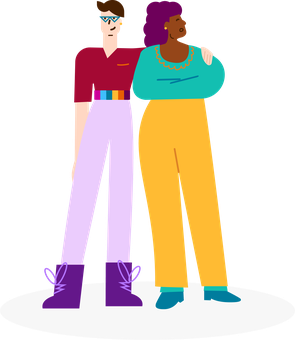All 101 guests staying at Glass Door’s central London hostels were offered the chance to receive the Covid-19 vaccine recently. When we found out a few days before the visit, we knew we needed to do more than just provide a physical space for the vaccinations to take place. We quickly launched a campaign aimed at increasing uptake, with mixed success. Here’s what we learned.
Certainly, having access to the Covid-19 vaccines is crucial. Cases of coronavirus were skyrocketing in London among the homeless population in January, and an outbreak in a hostel setting could be tragic.
But access is only the first step. Guests would also need to consent, and early feedback wasn’t promising. Conspiracy theories and misinformation needed countering. Many of our guests have a generalised distrust of institutions.
We knew that having trusted staff involved was going to be key. And we knew that myth-busting wasn’t a very effective tool (Frameworks institute has shown this tends to just reinforce the myth). Other research indicates an appeal to community responsibility could be particularly effective in bringing along sceptics.
With this in mind, within hours we produced and delivered a poster to be displayed in the hostels and a Fact Sheet for staff. The content on the Fact Sheet was approved by the Homeless Health team before distributing Friday afternoon. Vaccines were due to take place the following Monday.
The poster featured a long-standing member of staff with a message that emphasised the societal benefits of taking the vaccine. The poster is meant to encourage guests to speak to staff.
Guests also received a letter telling them about the vaccine offer and asking them to confirm whether they would have it so we could pass numbers to NHS staff and avoid wastage.
Truthfully, it’s hard to know if the posters and fact sheets made a difference. The uptake in the first of the two hostels the vaccination team visited was 63%. However, the second hostel visit later in the day was much lower, and we are exploring why that was.
However, what I witnessed at the first hostel visit gave me reason to feel optimistic.
Anya*, a woman staying at the hostels, looked visibly nervous. “I can’t stand needles,” she said while waiting her turn. She had told staff that she would probably have the vaccine, but she wasn’t sure until the last minute.
Manu, one of the wonderful peer advisors from Groundswell, was there to support the initiative. “I fainted recently when I had to give some blood at the doctors,” he said, sympathising with Anya. “But this jab isn’t a big deal. You’re hardly going to feel it,” he reassured her.
When Anya’s name was called, she took a deep breath and went ahead. “I’m doing it because it’s protecting me and everyone else,” she said out loud to reassure herself.
Afterwards, she agreed to pose for a photo to encourage others to also have the vaccine.
